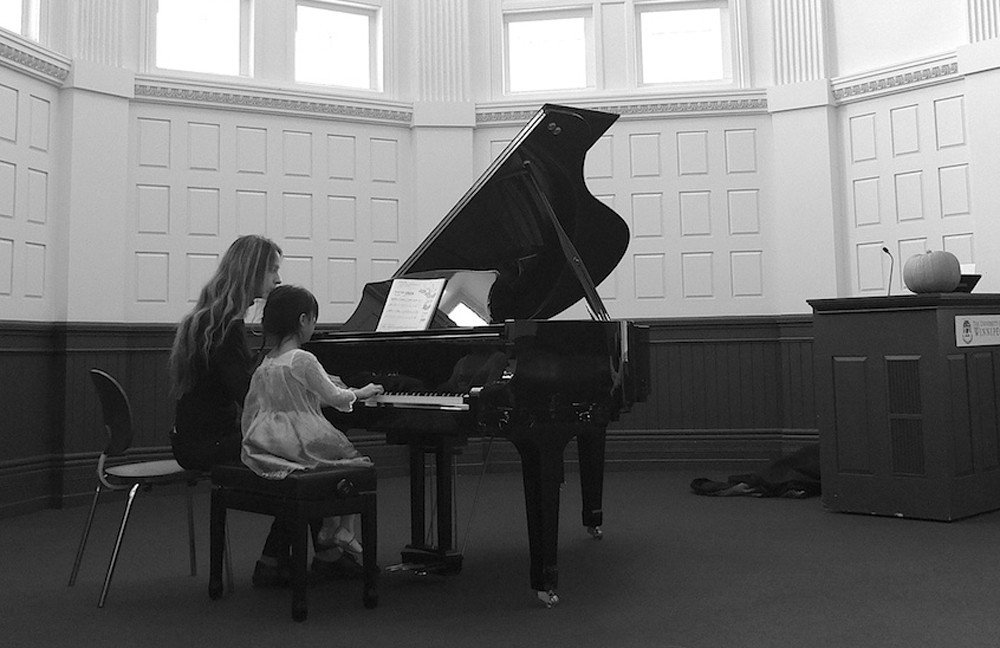Fill your spare with song
MCMA offers daytime music lessons to students
For the busy student or educator puttering away on campus, music can be an escape.
Very often campus study spots are filled by students with noses nestled in books and ear buds firmly in place. Music can get us through the rough times in our studies by offering a needed diversion.
Rather than finding that break in consuming music, instructors at the Manitoba Conservatory of Music and Arts (MCMA) are challenging students to create it.
As part of a new partnership between MCMA, the University and the Collegiate, downtown dwellers can take individual music lessons in the instrument of their choice (including voice) in Bryce Hall.
Samantha Beiko, marketing and student services co-ordinator with the MCMA, says there are 10 studios on the second floor of Bryce Hall – each with its own piano – in need of daytime use.
“We have a bunch of these daytime spots and we would love to fill them with students who are here and who have spares, as well as faculty and staff on the campus,” Beiko says.
For a limited time the MCMA is offering discounted lessons for new MCMA students. If you sign up and take your first lesson before Feb. 21, six weeks of 30 minute lessons are $125. Beiko says that is a discount of about $75 from regular priced sessions. Available time slots are Monday to Friday, 9 a.m. to 5 p.m.
The studios are also open to students for a quiet study or practice space free of charge. The rooms were created as part of an extensive renovation to Bryce Hall that was completed in the spring of 2014 and is part of the Collegiate’s new music and performing arts program. To book a room, the MCMA just requires a phone call to reserve the space.
According to Beiko there are also 50 music instructors available to students and staff for 30 minute lessons on spares or lunch breaks. She says it’s a good opportunity for people who haven’t had a private lesson before to see what the experience is like.
“If it’s an instrumental discipline they’ll bring themselves and their instrument and they’ll work with the teacher on pieces that they’ve chosen for their level, and they’ll work through them with a focus on technique and how to approach them,” Beiko said. “So they’re using the repertoire as a lesson tool.”
There are also a number of benefits to practicing music while studying even if it’s tough to fit in with a school schedule, Beiko says.
“We see with our students a lot of them have the tendency to give up their private music instruction that they’ve been doing since age five till 18 because they get to university and they’re just like, ‘oh no, there’s so much going on and I won’t have time to do it,’ but it’s one of those things that if you keep using it throughout your school life it helps you balance everything else,” she says.
Visit mcma.ca for more information.
Published in Volume 69, Number 16 of The Uniter (January 14, 2015)








